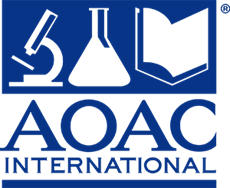Raising Standards for Formula to Change Global Health
Health risks resulting from poorly regulated infant formula have caused illness and deaths in infants across the globe. AOAC INTERNATIONAL raised the standards for infant formula to improve infant health around the world and break down trade barriers.
The Challenge
In 2008, more than 53,000 illnesses were reported in China related to the consumption of infant formula. Nearly 13,000 individuals were hospitalized, with four infant deaths reported. The infant formula prompting these illnesses contained melamine, which resulted in internal complications for infants.
As issues were revealed globally, the infant formula industry determined many of the methods of analysis for nutrients and contaminants in infant formula within the United States were outdated and therefore required new scientific research to set revised standards. Without revision, products currently being sold by some manufacturers could continue to leave infants vulnerable to emergent safety and nutritional risks. AOAC INTERNATIONAL is the leading third-party organization trusted by the U.S. Food & Drug Administration (FDA) when setting standards and establishing methods of analysis that ensure the safety and integrity of foods and other products that impact public health. Given this role, the Infant Nutrition Council of America entered into an agreement with AOAC INTERNATIONAL to facilitate a comprehensive process to assess and revise these standards.
The Approach
AOAC INTERNATIONAL gathered a large group of interdisciplinary experts, including regulators and academics, called the Stakeholder Panel on Infant Formula and Adult Nutritionals (SPIFAN) to develop standards for infant formula. The group was formed to serve as a leading solutions provider in tackling industry and trade issues and regulatory compliance. SPIFAN organized various working groups to develop and review consensus-based standards over a seven-year time frame, beginning with town hall meetings with approximately 300 experts, regulators, and key leaders to discuss infant formula standards.
As the initiative moved forward, AOAC INTERNATIONAL developed the acceptance criteria needed for the standard development process. Working groups were organized by priority nutrient categories and group chairs provided an overview of the latest research and regulations on each nutrient. The first set of working groups embarked on an extensive literature review and research as the basis for developing the initial draft Standard Method Performance Requirements (SMPRs). Scientific research also led to the development of commodity testing materials.
Public comment, review, and evaluation of AOAC SPIFAN methods by the International Organization for Standardization (ISO), International Dairy Federation (IDF) and other stakeholder groups resulted in feedback on each method. Engagement with multiple industry stakeholders and regulators resulted in consensus and adoption.
Outcomes
To date, 28 working groups have been identified, each focusing on a key nutrient category of infant formula, including amino acids, vitamin A, vitamin B1, vitamin B2, vitamin C, whey protein, and others. This work resulted in Standard Method Performance Requirements being approved for various nutrient categories at different points in time.
The work has also resulted in the adoption of nearly 50 standards as AOAC Official Methods of Analysis (OMA) and over 30 different SMPRs. OMAs not only inform policy in the U.S. regarding standards and regulations, but also impact international policy and compliance requirements for manufacturers of powder, liquid, and ready-to-feed infant formula. SMPRs are used to evaluate candidate methods for possible adoption into OMAs, AOAC’s “gold standard.” Approved methods undergo rigorous, systematic scientific scrutiny to ensure they are highly credible and defensible—and can be used with confidence by industry, regulatory agencies, research organizations, testing laboratories, and academic institutions.
In 2017, AOAC SPIFAN Methods were endorsed as Type II methods to be used for global dispute resolution by the Codex Committee on Nutrition and Foods for Special Dietary Uses and the Codex Committee for Methods of Analysis and Sampling for adoption by the Codex Alimentarius Commission. In October 2018, AOAC INTERNATIONAL signed a new agreement with the Infant Nutrition Council of America to continue SPIFAN activities.
Impact
Improved, modern infant formula analysis methods support the safety and wholesomeness of infant formula throughout the world. For over 30 years, infant formula production methods changed while the internationally accepted methods used to facilitate trade had not, resulting in the creation of trade barriers between nations. OMA methods adopted in the U.S. have historically received global recognition and acceptance because of the collaborative model for the development of standards that are used to ensure safety and compliance. AOAC INTERNATIONAL’s work to raise the standards for infant formula ultimately enhances the health of babies consuming infant formula around the globe and breaks down trade barriers.
Infant formula is one of the most highly regulated foods in the world and AOAC collaborates with global standards organizations, government agencies and the industry to develop harmonized, validated test methods to verify that infant formula will deliver all of the essential nutrients .” —Deborah McKenzie, Senior Director of Standards at AOAC INTERNATIONAL
This project has truly been—and continues to be—a collaborative effort of many, dedicating countless hours of diligent and careful work. Stakeholders, partners and AOAC staff all came together to help define a process for setting voluntary consensus standards with high method performance expectations in an effort to provide the best methods needed by the community.”—Darryl Sullivan (Eurofins), chair of SPIFAN, First SPIFAN Methods Approved for Final Action Status AOAC Inside Laboratory Management, November-December 2014 issue p. 8
References
U.S. Food & Drug Administration, Import Alert 99-30
https://www.accessdata.fda.gov/cms_ia/importalert_401.html
AOAC INTERNATIONAL, About AOAC INTERNATIONAL
https://www.aoac.org/about-aoac-international/
AOAC INTERNATIONAL Interview, May 21, 2019
U.S. Food & Drug Administration, FDA Takes Final Step on Infant Formula Protections – June 9, 2014
https://www.fda.gov/consumers/consumer-updates/fda-takes-final-step-infant-formula-protections
AOAC INTERNATIONAL, About AOAC INTERNATIONAL
https://www.aoac.org/about-aoac-international/


